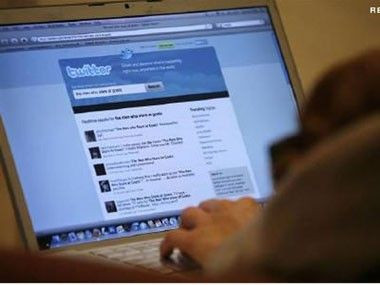India May Shut Down Twitter In Wake Of Hate Messages Aimed At Migrant Workers

The government of India is seeking to clamp down on social media – and may close down Twitter – as a flurry of false “hate messages” has sparked a mass exodus out of southern cities by migrants originally from the northeast and Assam.
Reportedly, 10,000 such migrants have already fled Bangalore and other towns.
Twitter has been asked to block subscribers who have sent out inflammatory “mass messages” warning minority groups of violence. New Delhi has also threatened legal action against websites that spewed any kind of bigotry or hate speech against minority groups.
Given India’s long and bloody history of communal and sectarian violence, such warnings were not taken lightly.
The Prime Minister of India, Manmohan Singh, is also irate over the existence of false Twitter accounts purporting to represent his office. While Twitter has already shut down six such phony accounts, the social media company has repeatedly insisted that its operations are independent of Indian laws.
“We cannot allow anyone to misrepresent the PM's office and tweet nonsense,” said a statement from Singh’s office.
The Daily Telegraph of Britain reported that India has about 16-million Twitter accounts. The Indian government has characterized Twitter’s response to the ongoing crisis as “poor.”
“When we tell these sites to inquire about the identity [of people posting false material], then they say we are out of your jurisdiction, our servers are outside and we are not under the obligation to disclose the identity,” said Kapil Sibal, the technology minister.
“So this means it is a platform where anyone can do anything.”
In response, Twitter stated: "India is important to us and we would like to have clearer communication in these matters in the future.”
Facebook has been more cooperative with Indian authorities than Twitter.
"We have received requests from Indian authorities and agencies and are working through those requests and responding to the agencies," Facebook said.
"Content or individuals can be removed from Facebook for a variety of reasons including issuing direct calls for violence or perpetuating hate speech."
Some Indian bloggers believe the government is to blame, not social media.
“The government is hiding their incompetence in handling the situation in Assam and other cities by shifting the blame to Twitter and Internet,” blogger Shivam Vij told the Telegraph.
“People who indulge in hate campaign can be dealt with present laws but a blanket ban on internet is not a solution at all.”
Even the U.S. government has weighed in the India-Twitter imbroglio.
Victoria Nuland, a spokesperson for the US State Department, commented: The U.S. has always been on the side of its full freedom. But as the Indian government continues to investigate these instances and preserve security, we also always urge the government to maintain its own commitment to human rights, fundamental freedoms, rule of law."
© Copyright IBTimes 2024. All rights reserved.




















